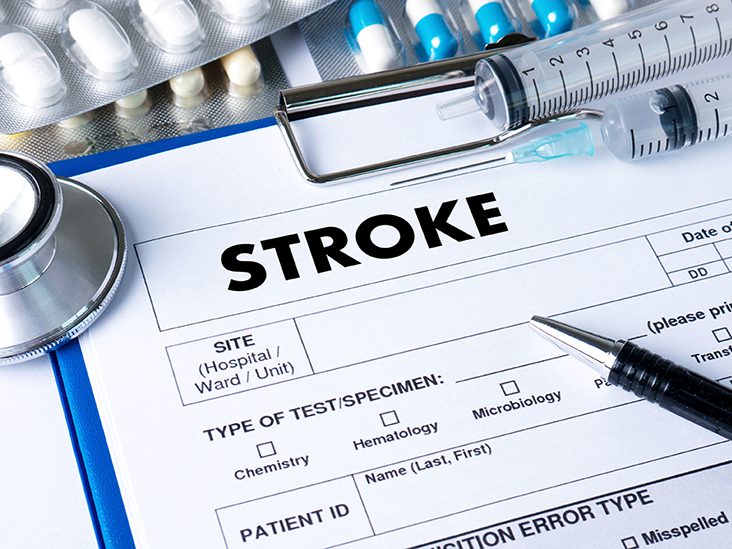Prevent Stroke with Medication: Understanding Antiplatelets, Anticoagulants & Statins
Share IT

Launch Your Dream Website with Us!
Click Here to Get in touch with Us.
Categories
Stroke Prevention Medication
Stroke prevention medications (statins, anticoagulants, and antiplatelets) are your body’s defense against stroke.
Globally, stroke is one of the main causes of disability and mortality. Fortunately, the risk of stroke can be considerably decreased by taking a number of preventive steps. Medication that targets the various pathways that contribute to the development of strokes is a critical component of stroke prevention. Three important classes of stroke preventive drugs are discussed in this blog post: statins, anticoagulants, and antiplatelets.
Thank you for reading this post, don't forget to subscribe!Table of Contents

Recognizing the Risk Factors for Stroke
Stroke Prevention Medication
The following are some factors that can raise one’s risk of stroke:
- High blood pressure: Uncontrolled hypertension raises the possibility of blood clots developing in the brain and destroys blood vessels.
- High cholesterol: An abundance of low-density lipoproteins (LDLs, or “bad”) cholesterol clogs arteries, making them narrower and more likely to clot, which would prevent blood flow.
- Atrial fibrillation: An irregular heartbeat in the heart’s upper chambers can raise the possibility of blood clots developing inside the heart and making their way to the brain.
- Diabetes: This condition affects blood arteries and raises the possibility of blockages and blood clots.
- Smoking: Smoking causes blood clotting and destroys blood vessels.
- Obesity: Being obese raises the risk of stroke by causing high blood pressure, diabetes, and high cholesterol.
The Way That Drugs Prevent Strokes
Stroke Prevention Medication
The several aspects of stroke development that are addressed by stroke preventive drugs include:
- Antiplatelet drugs:
- Function: The purpose of these drugs is to stop platelets—blood cells that are involved in clotting—from aggregating and creating clots that could obstruct blood supply to the brain.
- Examples: are ticagrelor (Brilinta), clopidogrel (Plavix), and aspirin.
- Side effects: Increased bleeding risk is one of the side effects, particularly at larger dosages.
- Anticoagulant drugs:
- Function: The clotting cascade, a sequence of events involved in the production of blood clots, is the direct target of these drugs. By doing this, blood clots are avoided before they start.
- Examples: are Rivaroxaban (Xarelto), Dabigatran (Pradaxa), Apixaban (Eliquis), and Warfarin (Coumadin).
- Side effects: Higher risk of bleeding necessitates dose modifications and routine blood testing.
- Drugs called statins:
- Function: By lowering LDL cholesterol levels, these drugs lessen the risk of artery plaque accumulation and blockages that may result in stroke.
- Examples include simvastatin (Zocor), rosuvastatin (Crestor), and atorvastatin (Lipitor).
- Adverse effects: Rarely, impaired liver function and muscle pains.
Selecting the Appropriate Drug
Stroke Prevention Medication
A person’s medical history and unique risk factors determine which drug is best for preventing strokes. Your doctor will take into account things like:
- Kind of stroke risk: Is atrial fibrillation or atherosclerotic disease (plaque accumulation) the cause of the risk?
- Additional health issues: Do you have a medical history of bleeding, heart problems, or other conditions that could affect the medication you choose?
- Factors related to lifestyle: Do you smoke? Do you successfully control your blood pressure and weight?
Controlling Medication and Modifying Lifestyle
Stroke Prevention Medication
While medications are an important part of the treatment, they are not the sole one. The following additional lifestyle modifications can considerably lower the risk of stroke:
- Keep up a healthy diet: It’s important to eat a diet high in fruits, vegetables, whole grains, and low in saturated fat, cholesterol, and sodium.
- Exercise on a regular basis: Exercise on a regular basis helps maintain healthy cholesterol, blood pressure, and general wellbeing.
- Give up smoking: Smoking greatly raises the risk of stroke. Giving up smoking is one of the best strategies to reduce your risk.
- Control your stress: Prolonged stress raises blood pressure and other risk factors. Practices that reduce stress, such as yoga or meditation, can be beneficial.
- Keep your weight in check: Being obese raises your risk of stroke. Strive for a healthy weight by eating right and working out.
In summary: Collaborating with Your Physician
Stroke Prevention Medication
Preventing strokes requires cooperation between your physician and yourself. You may greatly lower your chance of having a stroke and improve your cardiovascular health by learning about the risk factors for stroke, talking to your doctor about the right medication, and implementing healthy lifestyle choices. Recall that leading a healthy, meaningful life and preventing strokes depend heavily on early intervention and preventive measures.

Launch Your Dream Website with Us!
Click Here to Get in touch with Us.





























































Recent Comments